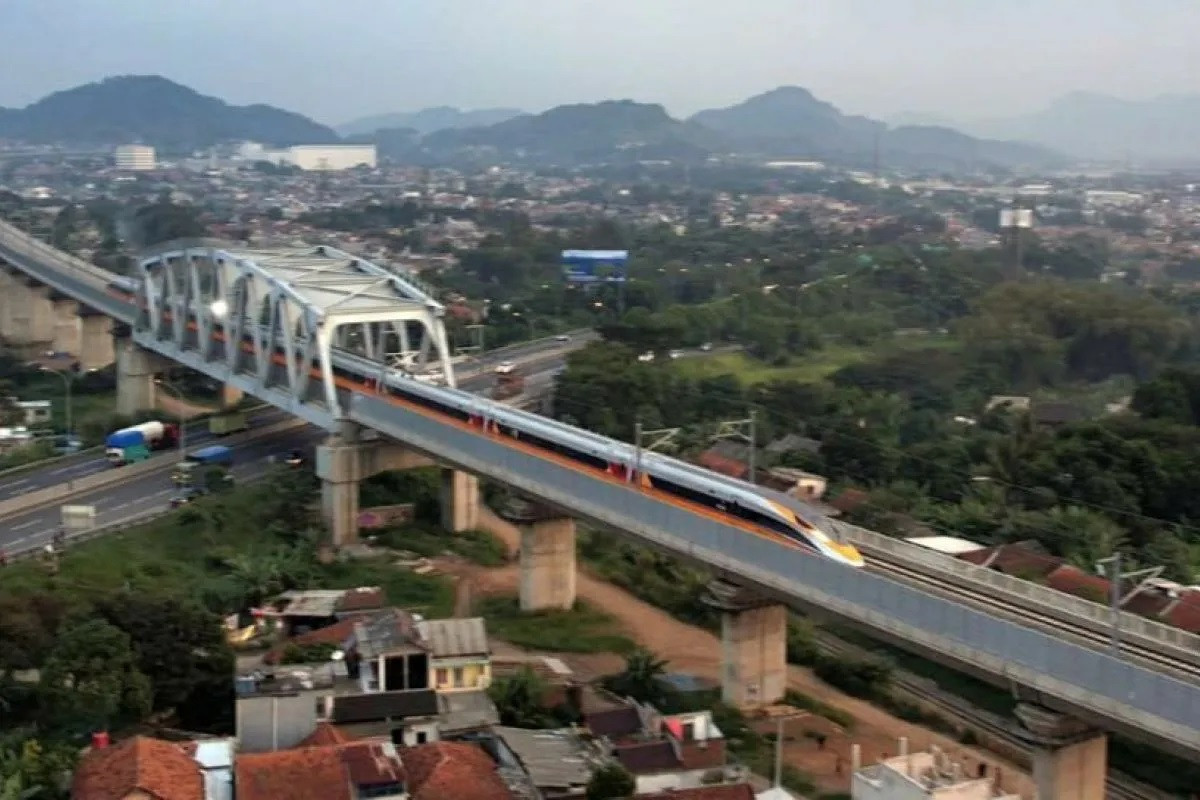Popular Reads
Top Results
Can't find what you're looking for?
View all search resultsPopular Reads
Top Results
Can't find what you're looking for?
View all search resultsMistargeted subsidy
Forcing PT KAI to sell tickets below the market price will only endanger the company’s financial health and in turn will put the operation of its other regular train services at risk and disrupt its future railway development in many parts of the country.
Change text size
Gift Premium Articles
to Anyone
T
he Jakarta-Bandung high-speed railway (HSR) is not the type of project that deserves a subsidy regardless of the government’s concern that it may be difficult to attract enough ridership to keep the business alive and sustainable.
Kereta Cepat Indonesia China (KCIC), the consortium responsible for the high-speed railway, has proposed a ticket fare of around Rp 250,000 (US$16.31) for the early years of its operation, on par with the second most expensive fare for regular train Argo Parahyangan plying the same route, and below the initial, non-subsidized price of Rp 350,000.
With that ticket price, the high-speed train is destined to serve middle and high-income groups and is geared toward business trips. According to Transportation Law No. 22/2009 business trips are outside the classification for services that are entitled to a subsidy, which in fact is covered by taxpayers’ money.
Current estimates suggest the government would need at least Rp 1.1 trillion a year to subsidize the high-speed train, assuming it would carry 30,000 passengers per day as projected by the University of Indonesia’s modeling provider, Polar UI.
Pouring more taxpayers’ money to subsidize high-speed train passengers, who do not in need of a subsidy, constitutes yet another betrayal on the part of the government.
When launching the project in 2015, President Joko “Jokowi” Widodo made it clear the high-speed railway would not involve the state budget, saying it would follow a business-to-business (B2B) cooperation scheme.
Yet in 2021, the government broke that promise by allowing the involvement of the state budget through a state capital injection (PMN) and a government guarantee to ensure the project could be finished in time along with the necessary Chinese debts it would occur.
The state budget is not designed to take up such a subsidy as the Jakarta-Bandung high-speed fare, given its already tight structure to support other expenditures, primarily the fuel subsidy, electric two-wheelers subsidy and the new capital city development project.
Instead of subsidizing high-speed railway passengers, the government should help public transportation systems in other regions outside of Greater Jakarta, which have so far been neglected.
Bus services in 300 cities in less developed regions receive a mere Rp 177 billion in subsidies per year, while inner-city bus rapid transit located in 11 cities such as in Medan, Bogor and Palembang, only receive Rp 500 billion per year.
The government will also need to subsidize ticket fares of the Greater Jakarta light rail transit (LRT) for a sustained period of time, which according to the law meets the prerequisite of a public service obligation.
The idea of subsidizing the high-speed railway initially came from President Jokowi on Aug. 10, but the budget is still nowhere to be seen. It is not in this year’s budget allocation or next year’s.
While the source of the subsidy remains unclear, the government should be wary to not lay the entire burden on the state-owned railway company PT KAI, which happens to lead the Indonesian stakeholders in the KCIC consortium.
Forcing KAI to sell tickets below the market price will only endanger the company’s financial health and in turn will put the operation of its other regular train services at risk and disrupt its future railway development in many parts of the country.
Now it is up to the government to find solutions so as to operate the high-speed train in a sustainable way, without burdening the state budget and other public services.
At the end of the day, it might be just a matter of consistency that requires the government to realign its development priorities such as moving away from toll roads and greatly improving public transportation connecting stations built for the high-speed railway.
All must be done to ensure the public is willing to leave their combustion-engine, carbon-emitting cars and switch to public transportation.











